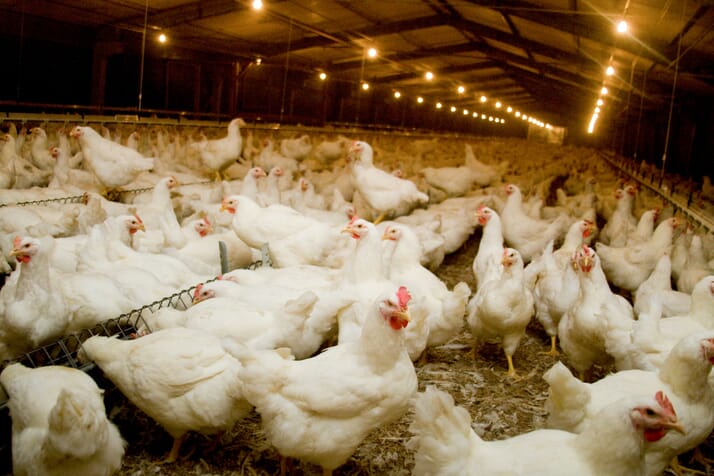
Agriculture
Soya bean exports trigger rise in chicken feed prices
October 21, 2021 / Noel Mkwaila

The Poultry Industry Association of Malawi (PIAM) has expressed concern over massive exportation of soya beans, which is a major ingredient in the production of chicken feed, saying it has resulted in soaring prices of the feed due to low supply.
The Malawi government is encouraging exportation of soya beans as a way of ensuring that local farmers who are usually duped by middlemen benefit from their sweat.
But PIAM said the decision is adversely affecting the poultry industry which relies on the bean as its main source of raw material for the production of most chicken feeds.
PIAM Technical Director Eric Chuma said continued export of the crop has led to the drop in the legume’s supply to local poultry feed manufacturers who have consequently hiked commodity prices, which is choking the poultry industry.
Currently the legume’s market price has jumped from about K500 to K800 per kilogram which Chuma said is a threat to the survival of the local industry.
“As an organization responsible for poultry farming in the country, we are concerned with government’s decision to export all the beans harvested in the just ended season. The exportation means the crop would be found in low supply locally, which would eventually affect local poultry production particularly by farmers who would be demanded to pay more for the feed,” said Chuma.
Chuma said the development would also affect poultry products consumption in Malawi, which is the lowest in Southern African Development (SADC) region.
“As much as it is a fact that soya export will affect poultry feed manufacturers, we are concerned that the development will lead to the reduction in consumption of poultry products whose prices are likely going to increase. For your information World Health Organization (WHO) recommends that one person should consume at least 8 kilograms of chicken meat a year, unfortunately, the highest consumer in Malawi eats less than that, which is the lowest in SADC,” said Chuma.
He also urged government to encourage farmers to start producing huge quantities of the crop so that the country can have sufficient quantities of the seed for local consumption and export.
Records have shown that, Malawi produces 200 thousand metric tons of soya beans a year which is against the demanded 500 thousand Metric tons.
Chuma said there are expectations that exportation of the legume might lead to the drop in number of poultry farmers as many will not afford buying feed at exorbitant prices.
He said such a situation may affect exportation of poultry products and domestic incomes of small-scale poultry farmers.
Operations Manager for leading poultry producer Central Poultry (CP) Michael Davis complained that soya exportation has affected operations of the company.
He said CP is already buying poultry feed at higher prices and such price increases may be effected on prices of their end products in so doing impacting on consumers.
“It is true that Soya beans which is one of the raw materials for manufacturing poultry feed is in low supply and expensive which is affecting our business, as prices of most chicken feeds have gone up,” he said.
Local animal production sector contributes 11 percent to Malawi’s Gross Domestic Product (GDP) with poultry industry alone contributing about eight percent.
Meanwhile, the Farmers Union of Malawi (FUM) has called on government to put in place measures aimed at promoting poultry farming in the country saying the industry has potential to substantially contribute to the economy of the country.
FUM’s President Frighton Njolomole made the call in an interview with Agribusiness Review following an observation that raising of domesticated birds such as quails (zinziri) has become popular in the country.
“We cannot deny the fact that the poultry industry is now one of the fastest growing industries in the commercial farming fraternity looking at how popular raring of birds has become,” said Njolomole.
Njolomole urged authorities to respond to the growing interest of farmers at both local and urban level in the poultry business by putting in place interventions that will help them expand their business.
He said “The government needs to deploy extension officers to be inspecting the poultry farming sites to teach farmers best practices.”
“We would definitely love to have a lot of people from agricultural sector who are committed in what we, as farmers, are doing. We have young men and women who are working tirelessly in the industry.”
Njolomole also said the government needs to promote poultry farming so that Malawi becomes self-reliant on production of chicken products.
“The country has the capacity to produce many chickens to meet local demand and export to other countries. We should not be importing chickens because of complacency,” he said.
Njolomole said if Malawi exploits the full potential of the poultry industry, government can collect increased revenue in form of taxes, and the industry can also substantially assist in improving the financial well-being of farmers and providing nutritional requirements to the population.































